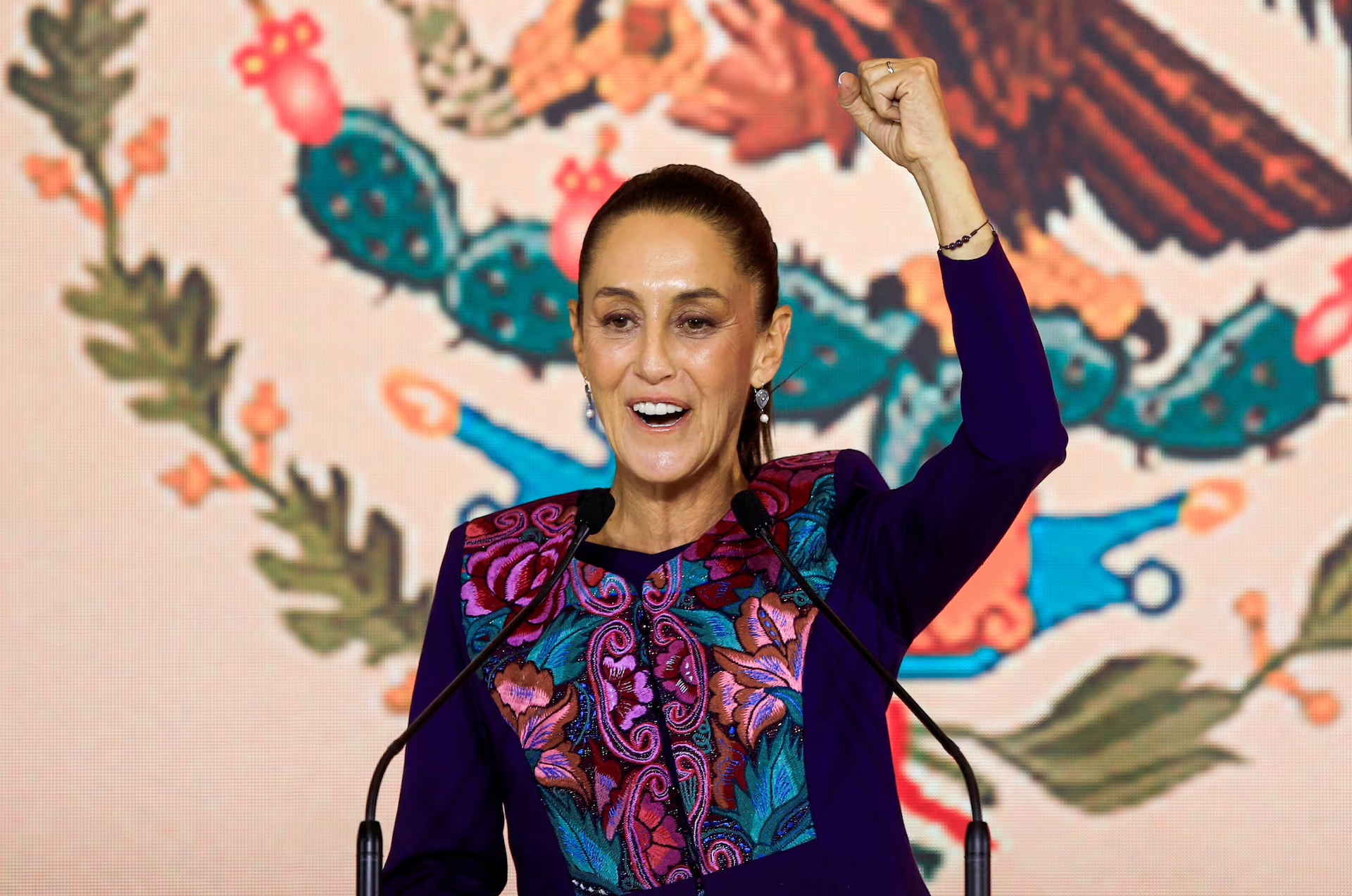Sheinbaum Touts Her Strong Ties to Trump to Sell CEOs on Mexico
 President Claudia Sheinbaum is pitching Mexico as a winner in Donald Trump’s global trade war, arguing that her positive relationship with the US leader has made it a more attractive place to invest.
President Claudia Sheinbaum is pitching Mexico as a winner in Donald Trump’s global trade war, arguing that her positive relationship with the US leader has made it a more attractive place to invest.
Mexico has not gone entirely unscathed. Trump has imposed some levies on Mexican and Canadian goods that are not subject to the North American free trade deal known as the USMCA, along with duties on steel and aluminum. New 25% automotive tariffs that went into effect Thursday also threaten to dent one of Mexico’s major exports.
But Mexico has set out to get itself a better deal. Economy Minister Marcelo Ebrard will travel to Washington next week to continue talks with the US, and Sheinbaum expressed confidence that her “cool-headed” approach to Trump will continue to pay off. Ebrard set a deadline of under six weeks to achieve reduced tariffs on steel, aluminum and the automotive sector, he told the press on Thursday.
The Mexican peso strengthened as much as 1.8% Thursday, an early sign of investor confidence in Sheinbaum’s strategy. Mexico’s stock market jumped as much as 2% during morning trading — the biggest gain in the world — to its highest level since July.
“Furthermore, China and many other Asian exporters will be levied very high reciprocal tariffs, which in relative terms improves the external competitiveness of Mexico,” he added.
The auto tariffs pose risks to a sector that is responsible for 30% of Mexico’s exports, and the fallout from Trump’s announcement led Stellantis NV to halt work on factories in Canada and Mexico. Other automakers, including Toyota Motor Corp. and Honda Motor Co., sought to stop or reduce overtime payments at factories in Mexico.
But while Canada said it would impose retaliatory tariffs on US-made vehicles, Sheinbaum made no mention of a fight.
Instead, she touted her success to other automakers as she seeks to persuade them to maintain operations and investments in Mexico. She said she has already been in touch with top executives from Mercedes-Benz Group AG, Volkswagen AG and BMW AG as she seeks to show companies that Mexico remains a more alluring destination than countries that are now facing far steeper tariffs.
 Mexican auto exports to the US totaled $68.7 billion in 2024, while auto parts shipments reached $37.4 billion, according to central bank data. As much as 84% of those exports already comply with the USMCA, Ebrard said at the briefing.
Mexican auto exports to the US totaled $68.7 billion in 2024, while auto parts shipments reached $37.4 billion, according to central bank data. As much as 84% of those exports already comply with the USMCA, Ebrard said at the briefing.
“Our goal is that in the next 40 days we manage to have the best conditions compared to other countries in the world in the auto industry, and the same goes for steel and aluminum,” Ebrard said. “We want the competitiveness of Mexico to be very high.”
Later in the day, Sheinbaum outlined plans to better prepare Mexico for turbulent global times and make it more appealing to businesses. She called for increasing Mexican production of gasoline, diesel and jet fuel by 30% through the end of the decade, while reducing reliance on natural gas imports. She wants to bolster the production of cars for local buyers by 10% and ramp up investments in electricity generation, she said.
Sheinbaum also called for a further strengthening of Mexico’s trade ties to non-US markets in order to maximize its opportunities amid Trump’s trade upheaval, although she reinforced plans to reduce imports from nations with which it doesn’t have trade deals.
“There is an agreement with Europe that has already been negotiated and is pending signatures,” she said of the deal Mexico reached with the EU in January. “We are going to maintain that, and also diversify to other markets.”

